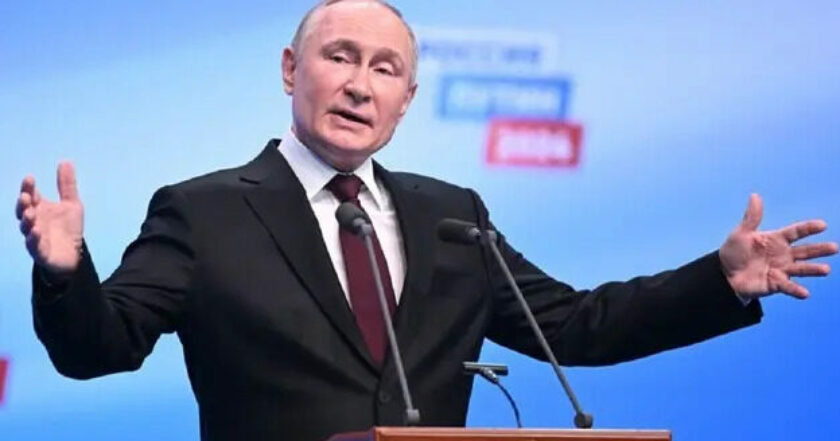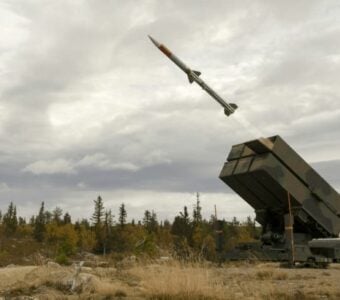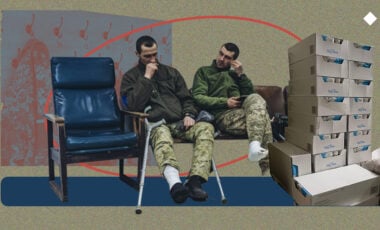What scared the fearmonger or What Putin's "peace plan" offers and why
On June 14, Russian President Vladimir Putin voiced his conditions to "end the war" against Ukraine. They included Ukraine abandoning its NATO ambitions, the withdrawal of Ukrainian armed forces from all of Ukraine’s eastern and southern regions of Luhansk, Donetsk, Zaporizhzhia, and Kherson, and the lifting of international sanctions on Russia. Supposedly, the Kremlin would be ready for peace talks from this point. In other words, right from the start, Putin has demanded concessions and will likely make more demands during negotiations. This is absurd, but it's based on careful observations. Putin can't expect his terrorist demands to be met, but the goal is simple — ahead of the Global Summit in Switzerland, he wants to show both a commitment to peace and consistency in his vision of order.

The unholy man's honest word
Putin doesn't give guarantees but asks the global community to trust his word that he has no further intentions of conquering Ukraine if he is given what has already been conquered and declared as such. Hypothetically, if the world agrees and makes this claim the cornerstone of "peace," it falls into a trap. Russian forces never captured the southeastern city of Zaporizhzhia. Still, under this approach, it must go to Russia because its parliament voted for the town's annexation based on a sham referendum staged in the occupied territories. Similarly, Russian sovereignty could be established over all of Ukraine and then over the rest of the European space from "Lisbon to Vladivostok."
Portuguese publicist and former Secretary of State for European Affairs Bruno Maçães wrote one of the best social science books of 2018, according to the American magazine Foreign Affairs. For his work "Dawn of Eurasia: On the Trail of the New World Order," he traveled for six months in the Caspian region — "the best symbol of competition and interdependence" of Russia, Azerbaijan, Iran, Turkmenistan, and Kazakhstan — to see the future supercontinent formed by the competition between the EU, China, and Russia, but designed in Beijing and Moscow. This trip was after the annexation of Crimea and other proof of Putin's lack of respect for competition. Ultimately, the author realized the consequences of such a design, not by solely interviewing Kremlin propagandist Sergey Karaganov in late March 2022, but by republishing a two-year-old interview in May 2024 against the backdrop of new Putin's statements about "deterring the West." The Russian leader's peace plan reeks of mandarins — if accepted, his agenda or the unique Chinese original will helplessly pave the way for Europe's colonization from the East.
Sanctions are helpful, but it's better without them
By cynically responding to the question about the 2000 disaster — "What happened to the Kursk submarine?" — Putin opened an era of indifference to his own statements. No one should have ever caught him at his word. Since then, he repeats himself "pulling Russians out of poverty" almost every year and says he had no intention of "storming Kyiv." Similarly, international sanctions "benefit Russia," but Putin included their revocation as a condition to agree to normalize relations with Ukraine and the West. Yet he doesn't need any improvement if it isn't accompanied by Western leaders "kissing the ring."
Michael Kimmage, author of The Origins of the War in Ukraine and the New Global Instability and a history professor at the Catholic University of America, claims that Putin deliberately separated Russia from the West. The isolation isn't about opportunity costs or lost benefits due to the war against Ukraine — the rupture is the point of this war. It is also not restricted to the "Ukraine issue." It has many dimensions: the war between Russia and Ukraine, which has been happening through a series of invasions since 2014; the undeclared war of hidden battles between Russia and Europe; and the war between Russia and the USA, which stands behind its European and Ukrainian "puppets" and tries to destroy Russia with others' hands and sanctions.
If the US accepts Putin's conditions, it will acknowledge the failure of its proxies and the ineffectiveness of sanctions, leaving the Americans with two choices: admit defeat or declare open war. Both options would benefit the Kremlin, making it appear victorious to the many observers from the Global South. This is where the West is making a critical mistake. By not portraying the war in Ukraine as colonial aggression, it fails to gain enough support in Africa and Latin America. The Russian invasion is indeed a form of Russian imperialism.
My. Burnt. Land.
Yuval Noah Harari, a writer and history professor at the Hebrew University of Jerusalem, points out that Russia constantly refers to "Western imperialism" or "cultural Coca-colonialism" to justify its aggression against Ukraine. However, these arguments cannot justify the "massacre of Bucha residents or the destruction of Mariupol." Russia's actions and statements can be explained by the practical application of the concept of "imperialism" in the sense of armed expansion. Since 1945, such imperialism has become taboo, but not for Russia.
In 2014, Russia began its conquest of Ukraine, guided by the principle that "where Russian troops are, there is Russia." The lie about peace in exchange for territory is meant to confirm the "fairness" of Russia's claims over all of Ukraine, in a twisted interpretation of Frank Herbert's Dune: the right to ownership is confirmed only by the ability to destroy. Besides blatant disrespect for international law and world order, such actions set a dangerous precedent for others waiting for their chance to try the same.
Exporter of fear
In the West, Putin's statement is seen in the context of the recent appearance of a Russian fleet near Cuba, which is considered a pathetic attempt to recreate the Cuban Missile Crisis. Russia acts from a position of strength more than it speaks. Even in an absurd scenario, Putin's talk of peace is one of many possible responses to a situation that isn't going as planned. Yet, he always has the option to go all in. It's hard to say if any convincing trump cards are left in the game, so Putin relies on his St. Petersburg street tactics of brazenness and bluff.
To some extent, this works: Russians believe in their country's invincibility, their waiting allies in the Global South foresee the imminent end of the West, Ukrainians swing from euphoria to despair, and the West struggles to balance the notions of Ukraine's victory and Russia's defeat. However, demanding the surrender of territories without a fight, which Russia would take years and thousands of lives to conquer (considering the current pace), is beyond the pale.
The Kremlin launches swarms of drones daily at Ukrainian cities, carries out massive missile strikes every other day, slowly advances on the eastern Luhansk front near the towns of Kupiansk and Siversk, threatens to capture the northeastern city of Kharkiv, and plans a new encirclement of Kyiv. Yet, it is afraid. This fear isn't the kind that paralyzes muscles, but it's enough to instinctively speed up events. Russia has plenty of reasons for concern: the major offensive on Kharkiv has failed, the West has allowed Ukraine to use supplied weapons on Russian territory, Sweden has provided two long-range radar surveillance planes, the arrival of F-16 fighter jets is imminent, France announced the delivery of Mirage jets, Argentina might contribute aircraft, the US has hit the Moscow Stock Exchange hard with sanctions, Ukraine signed security agreements with the US and Japan, G7 leaders demand Moscow compensate for Ukraine's material losses, and the results of the Peace Summit in Switzerland are uncertain. This all looks threatening enough to prompt action before the window of opportunity closes for good.
This interpretation is especially promising because it points out the fragile foundation of the colossus, giving hope that it might soon collapse. However, thinking this way is unproductive and dangerous due to the inevitable cognitive dissonance: if the greatest threat to global order is on its last legs, why isn't the world hastening its demise? How can we talk about a post-Putin Russia that we can deal with if such a Russia has no chance of emerging without help? There are too many "ifs" and "hows" to expect more action from the world than we're seeing now.
The best explanation for excessive caution came from Estonian Prime Minister Kaja Kallas. In an interview with France-Presse in mid-December last year, she warned Europe not to overestimate Moscow's military potential and not to fear Russia, which "understands only strength and sees weakness as a provocation." She backed up this symbolism with rational arguments: the combined defense budget of the countries in the Ukraine Defense Contact Group, known as the Ramstein format, is 13 times larger than Russia's, the collective European GDP is seven times greater, and Russia's budget is severely deficit-ridden and unable to attract external capital. Apparently, she convinced no one, as she repeated her words in May, pointing out the trap of fear, which is unique for each country: fear of nuclear war, escalation, and migration.
The fear argument is indeed valid. The Kremlin has been exporting fear to the West in small doses for too long and now sees the effectiveness of this "investment." The prevailing thought is that it's impossible to defeat Russia militarily to the extent that Nazi Germany was defeated because a nuclear state cannot lose that way. This leads to the expectation of escalation, which the Kremlin will resort to in case of a serious threat. We add to this the objective characteristics of the current moment.
First, Ukraine's key partners — the US, France, and the UK — are facing upcoming elections, and the importance of political turbulence there is well illustrated by the events on the borders with Poland and Washington's prolonged reluctance to supply weapons to Ukraine. Second, Western leaders show uncertainty in foreign policy and cause disappointment domestically, leading Politico to mock the G7 summit as "six lame ducks and Giorgia Meloni."
Putin regularly reminds the world about doomsday weapons. Most recently, on June 5, he insisted that the use of Russia's nuclear arsenal is not ruled out because there is a whole doctrine that cannot be taken lightly. It will be used if—followed by a long list of red lines, if crossed, leads to pressing the "button." At least some of these lines have long been crossed, some multiple times. The world is still here.
The metaphor of the thin red line was not formed out of anxious concern for the inevitable but from a determined readiness to face it. Russia cannot afford to lose, and the West cannot afford to fail in helping this loss happen. The world began moving in this corridor long before 2022, but the duration and end of the journey depend entirely on the realization that there is no third path.



















































